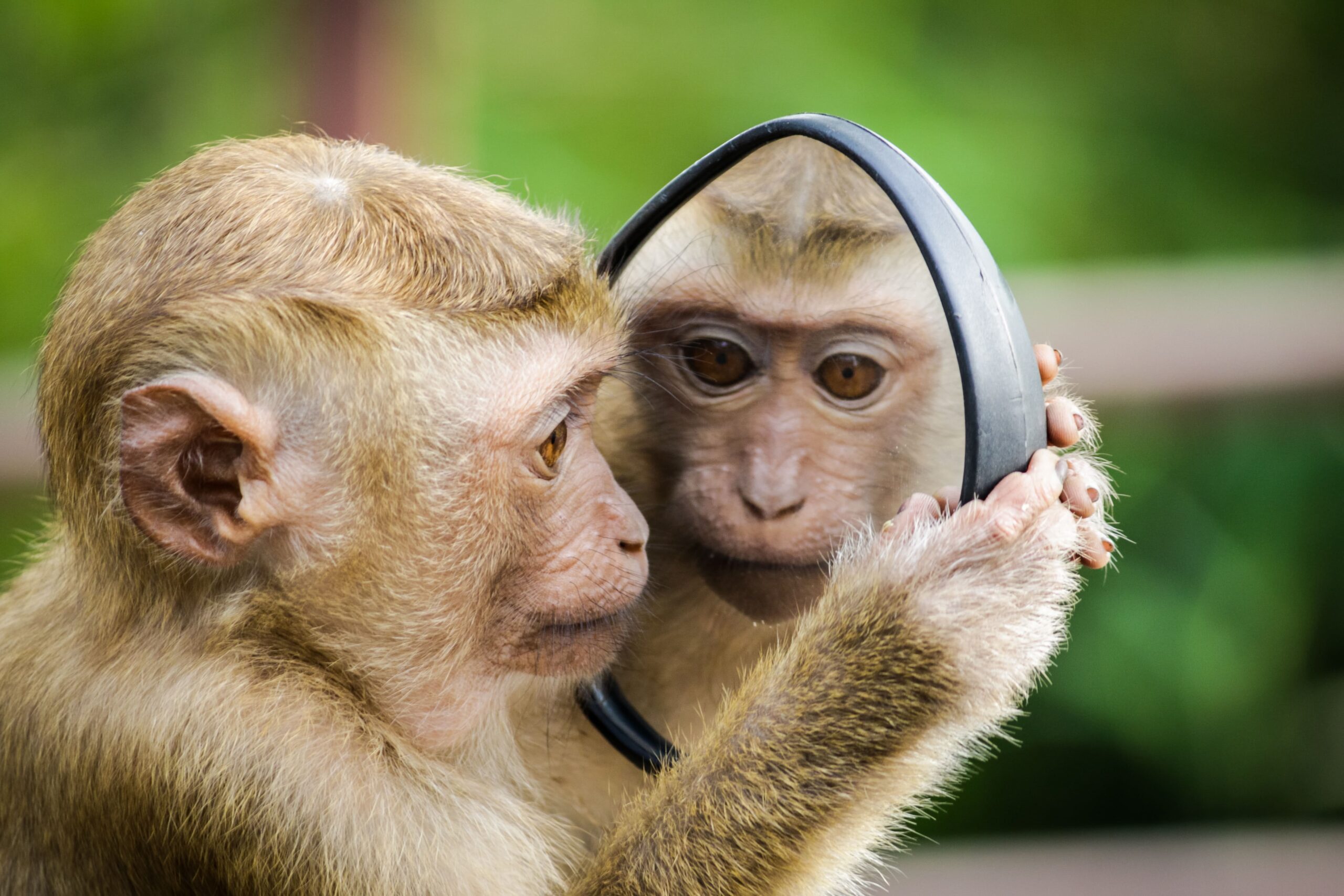Creating Mirror Experiences in Marketing
Have you ever watched a commercial and become so invested in its main character that you felt as if you were experiencing what they were experiencing? Did you find yourself rooting for their success as if it was your own? If so, you’ve been struck by a mirror experience.
Mirror experiences in marketing compel consumers to take action, driving sales. The best part? Humans are hardwired for them.
Everyday mirroring
Let's start with the basics.
Isopraxism, a fancy word for mirroring, is a part of our daily lives. We often unconsciously mimic the mannerisms of those around us. It signals that we’re present with those people and fosters mutual trust.
Think of the numerous behaviors and idiosyncrasies siblings tend to have in common. That stems from years of being raised together, mirroring their parents and each other without even realizing it.
The same goes for friendships. Have you ever caught yourself adopting the language, expressions, or gestures of your close friends? Mirroring is all around.
Mirroring can also be a conscious act of mimicry. Take social chameleons for example. Social chameleons modify their behavior depending on the group they’re with, the setting they’re in, etc.
For a large-scale example or mirroring, think of when you’re at a performance. If one person starts clapping, everyone starts clapping. Likewise, if one person starts the encore chant at the end of a concert, others join them.
We replicate behaviors to connect and fit in, whether consciously or not.
In essence, mirroring is a built-in bonding agent, fueled by our brains.
Mirror neurons at work
Mirror neurons are responsible for the human knack for imitation. They fire in the same way when we both observe and imitate a behavior, offering an explanation for empathy and the ease with which we so quickly pick up on the emotions of those around us.
Mirror neurons were first discovered in macaque monkeys a few decades ago. A study showed individual neurons firing in the monkeys' brains when they grabbed an object and when they watched another monkey grab that same object.

Some have theorized that mirror neurons are the reason for the "contagious" quality of yawns, firing when we witness that sleepy behavior, causing us to mirror it.
Mirror neurons, every storyteller's friend
Mirror neurons are vital to the processing of stories and their impact. They cause the brain activity of storytellers and listeners to sync up as a story unfolds, leading to a heightened sense of empathy.
We become so immersed in well-told stories we feel that we're living them, experiencing what the characters are experiencing. We cry when they're sad. Relief washes over us when they push through a tough situation.
The positive mirror experiences, like the triumphant moments in a plot, can even activate the reward center of our brain, releasing dopamine as if we were the ones to escape a villain or fall in love.
Story-generated mirror experiences can be divided into two categories: mental and emotional.
The two kinds of mirror experiences, as told by Storynomics
In Storynomics, authors Robert McKee and Thomas Gerace describe what constitutes the mental and emotional mirror experiences. One is a product of curiosity, the other of empathy.
Both are extremely powerful experiences to facilitate. So how can you do so?
The mental mirror experience
“The mental mirror experience begins and ends with curiosity. A story’s inciting incident teases the audience’s mind with unanswered questions such as ‘What’s going to happen next?...How will this story turn out?’” (Storynomics, page 88)
How is this curiosity a mirror, you ask? Because the questions generated by such curiosity reflect the questions we ask in our own lives. This is why so many stories grapple with the same big, sometimes unanswerable questions, like, “What is the meaning of life?”
Questions about purpose and our place here are natural brainteasers. We can spend a lifetime wondering of our purpose or designing it to fit a desired path.
To McKee and Gerace’s point, we care about how a fictional story will turn out because we want to know how our stories will turn out.
We are invested in the success of characters facing the same trials and tribulations of being alive that we do. It doesn’t matter if it’s an elf or a witch or a human, questions of existence will always tickle our sense of curiosity and instigate a mental mirror experience.

On a smaller scale, this mirroring could be applied to specific concerns rather than the broad existential concerns. For example, if a character is facing a particular struggle, a reader in the same boat will see their journey with that struggle as their own.
The emotional mirror experience
The emotional mirror experience is inextricably linked to empathy.
“When a story’s protagonist radiates a positive human glow from within, this center of good attracts the customer’s natural instinct to connect with a fellow human being. She quickly falls into a subconscious identification, aka empathy, with the protagonist.” (Storynomics, page 88)
Storynomics splits the emotional mirror experience into two steps: the identification and the subconscious switch.
The identification occurs when a reader recognizes themself in the protagonist, feeling a sense of kinship. That kinship leads to the reader wanting the protagonist to achieve their goals or obtain their object of desire.
The subconscious switch happens after this kindred bond is formed.
The reader identifies so intensely with the protagonist, that they suddenly and subconsciously not only see themself in the protagonist, they see themself as the protagonist.
“By rooting for the protagonist to obtain his object of desire in the story, the audience member vicariously roots for her own desire in life.” (Storynomics, page 89)
Empathy, the most powerful mirror
I believe that McKee and Gerace approach the emotional experience too narrowly, limiting it to a human-human connection.
They single out one’s human glow as the catalyst for the emotional mirror experience. I’d argue that that inner glow can radiate from any creature, so long as the audience can empathize with it.
Take dogs, for example. Some of the most compelling commercials use the wide appreciation of canines to sway customers into buying a product or making a donation.

The "center of good" and empathy are not reserved for humans. It is quite an anthropocentric view to think so. Empathy directed toward any sympathetic character in a commercial carries weight and the ability to influence a consumer.
Countless brands place the "center of good" in a non-human character. Charmin's family of bears, Keebler's elves, Tony the Tiger, the GEICO gecko, and so on.
Sometimes children seem to relate more to these non-human characters, their imaginations at peak ripeness.
Emotional mirror experiences are unique to each consumer. Not everyone will feel connected to the same characters, so why limit yourself? Empathy stretches beyond us.
Storytelling marketing creates mirror experiences
Now that you've learned of the natural ability of stories to create mirror experiences, you can better understand the value of storytelling marketing.
You want your commercials to be mirrors for your customers.
Storytelling is just the reflective, albeit intangible, substance you need.
If a consumer identifies with the main character and that character is pleased by your brand, they will try to replicate that character's experience by purchasing your product.
Creating mirror experiences in marketing is not only an effective tool but also a universal one because mirror experiences leverage the brain, something we all have in common.
Meld storytelling and the existing power of mirror neurons together to create immersive experiences. Once a consumer sees themself in your commercial, they'll be hooked by their own reflection, like a modern-day Narcissus.
Create mirror experiences with STORYSOFT's digital storytelling platform. Learn more.
Book a Demo
See how to bring personalized digital experiences to life for your brand
During the call you will:
- Hear how it works
- See example digital Stories
- Walk through the analytics
- Get your questions answered